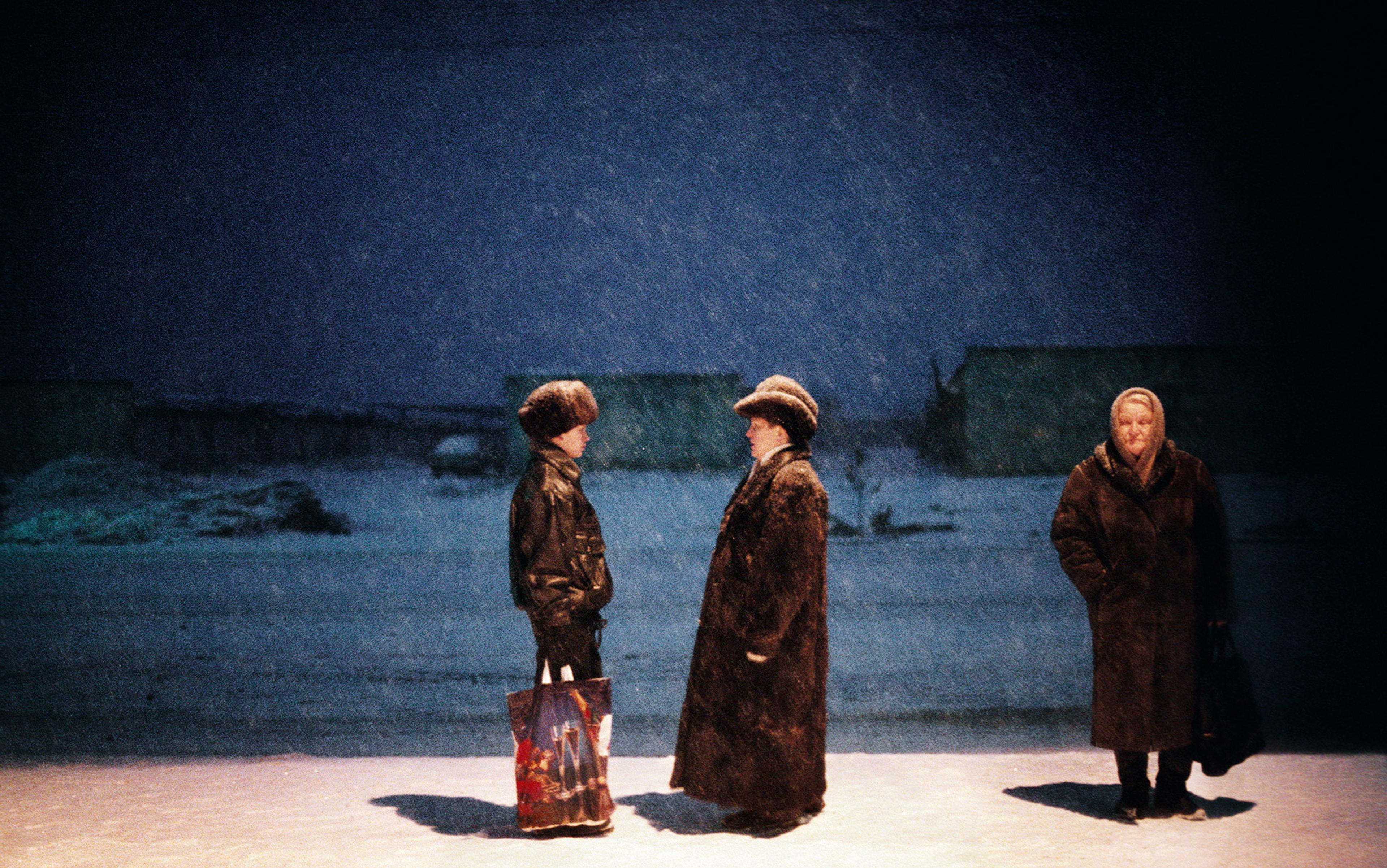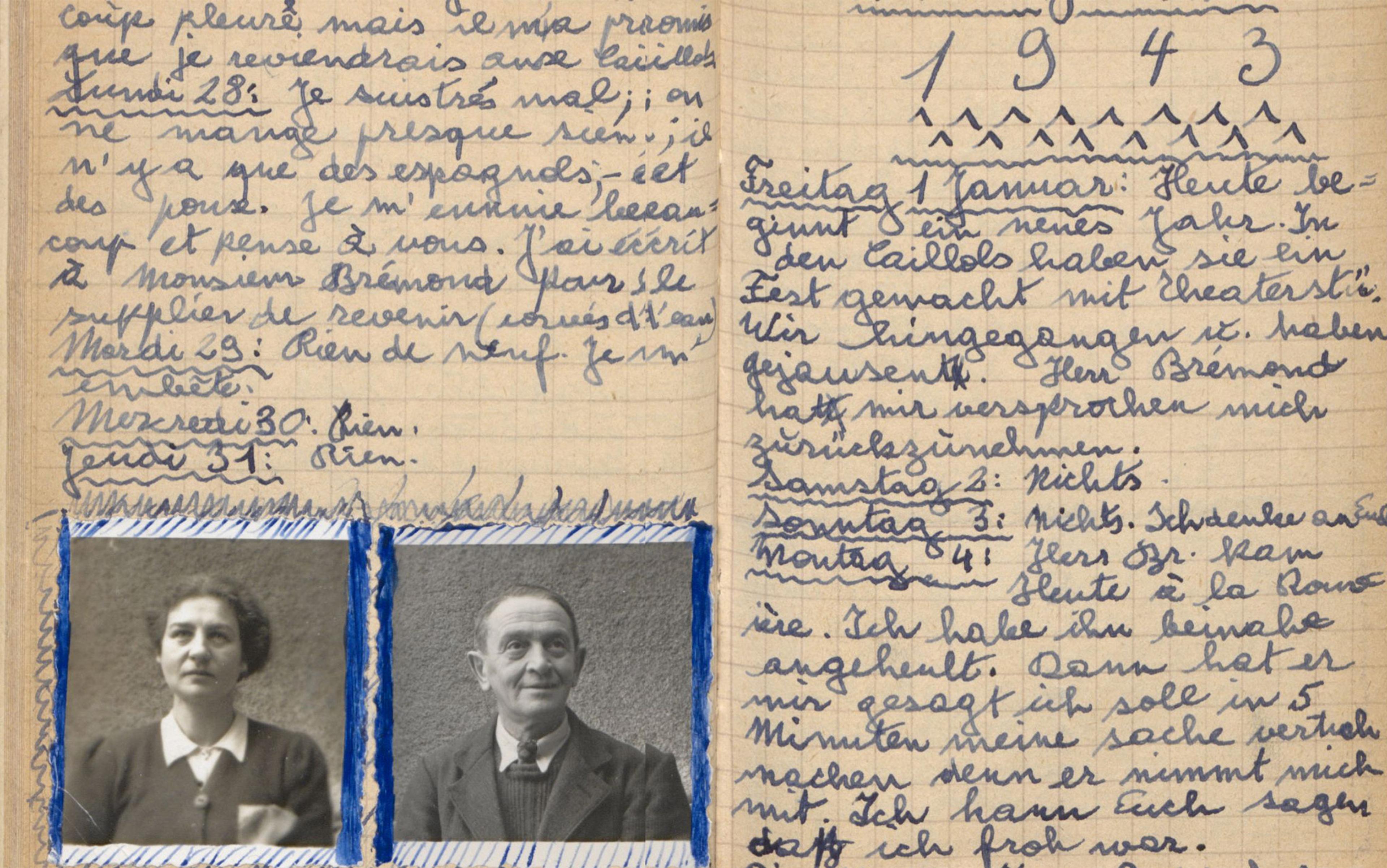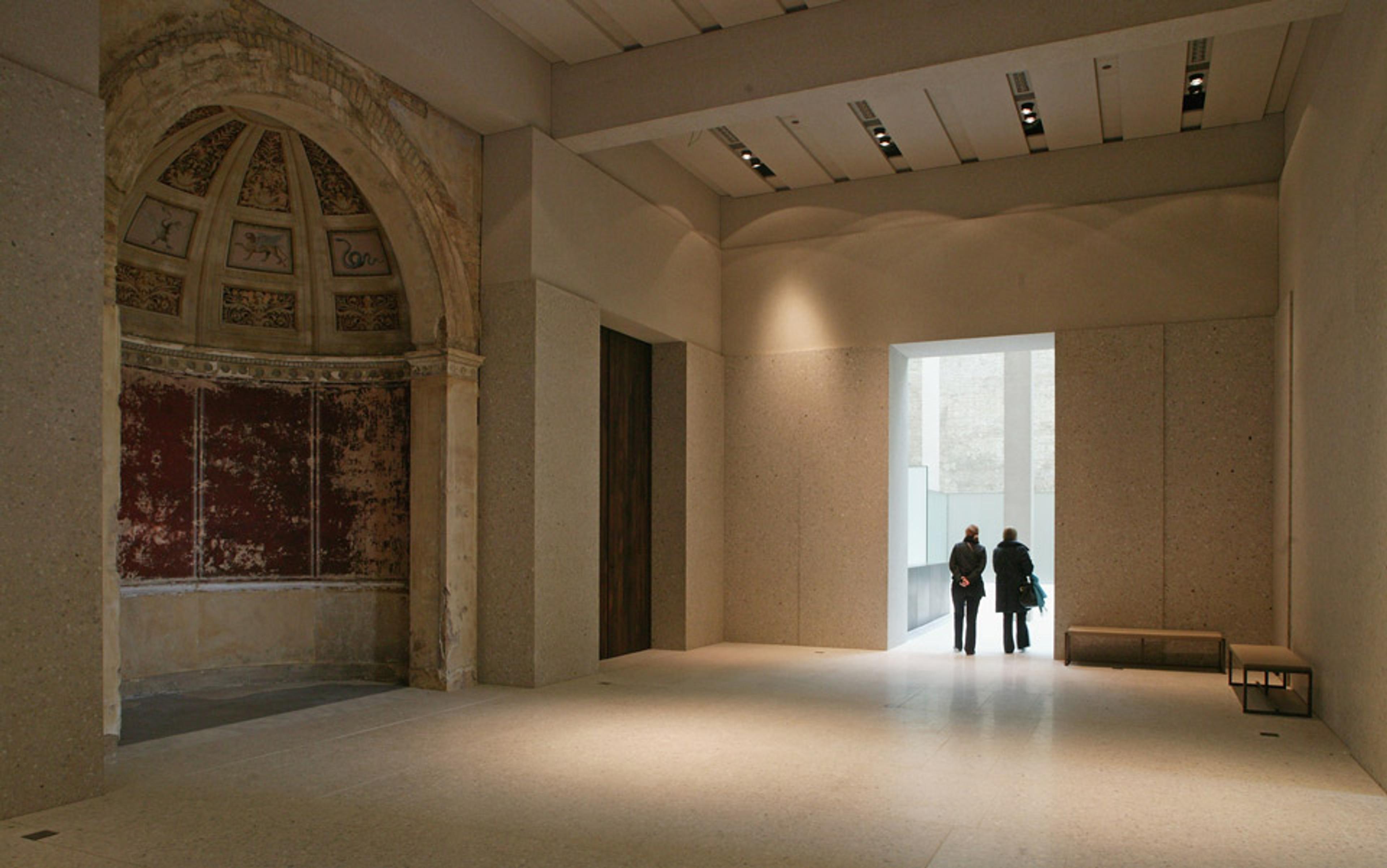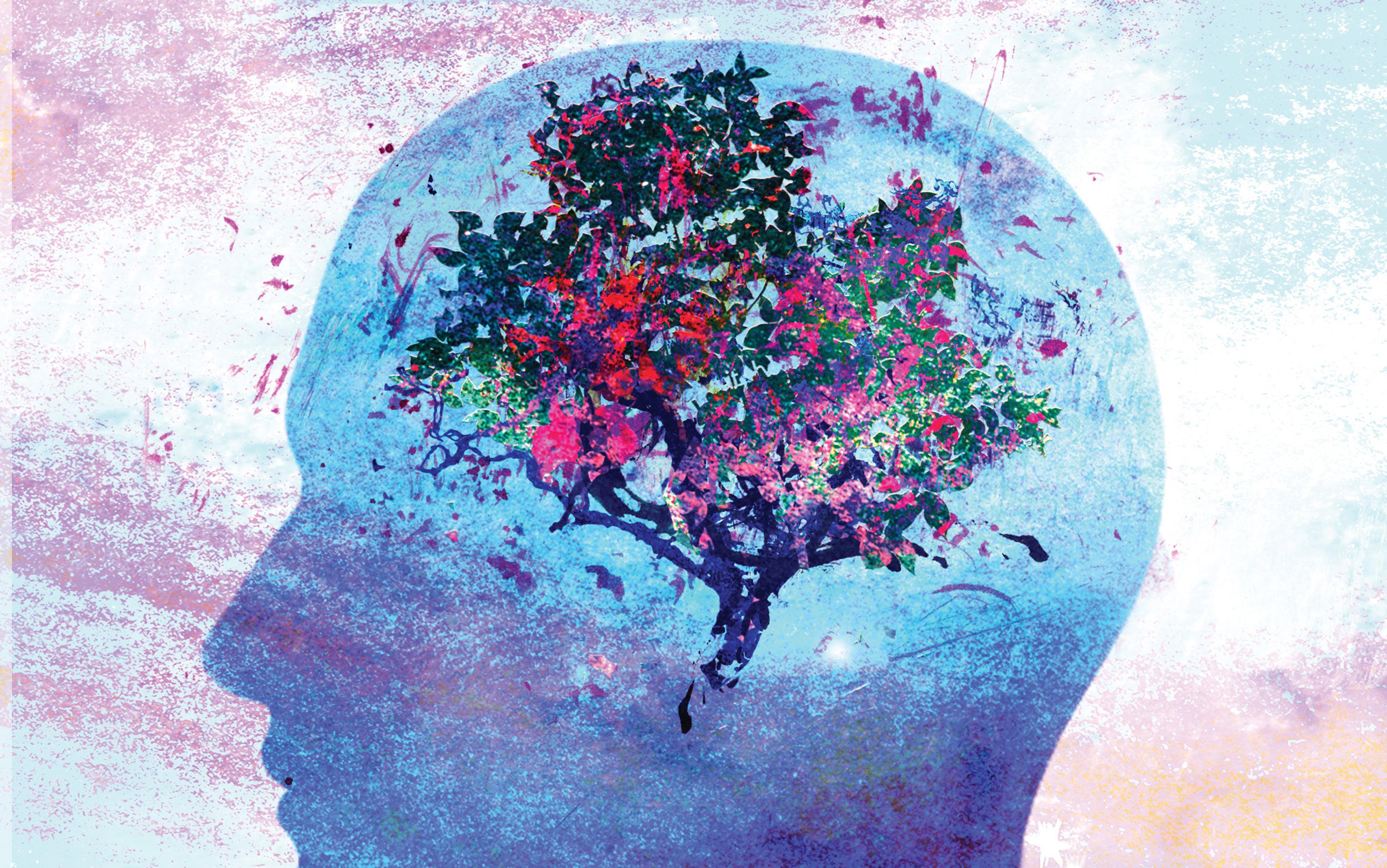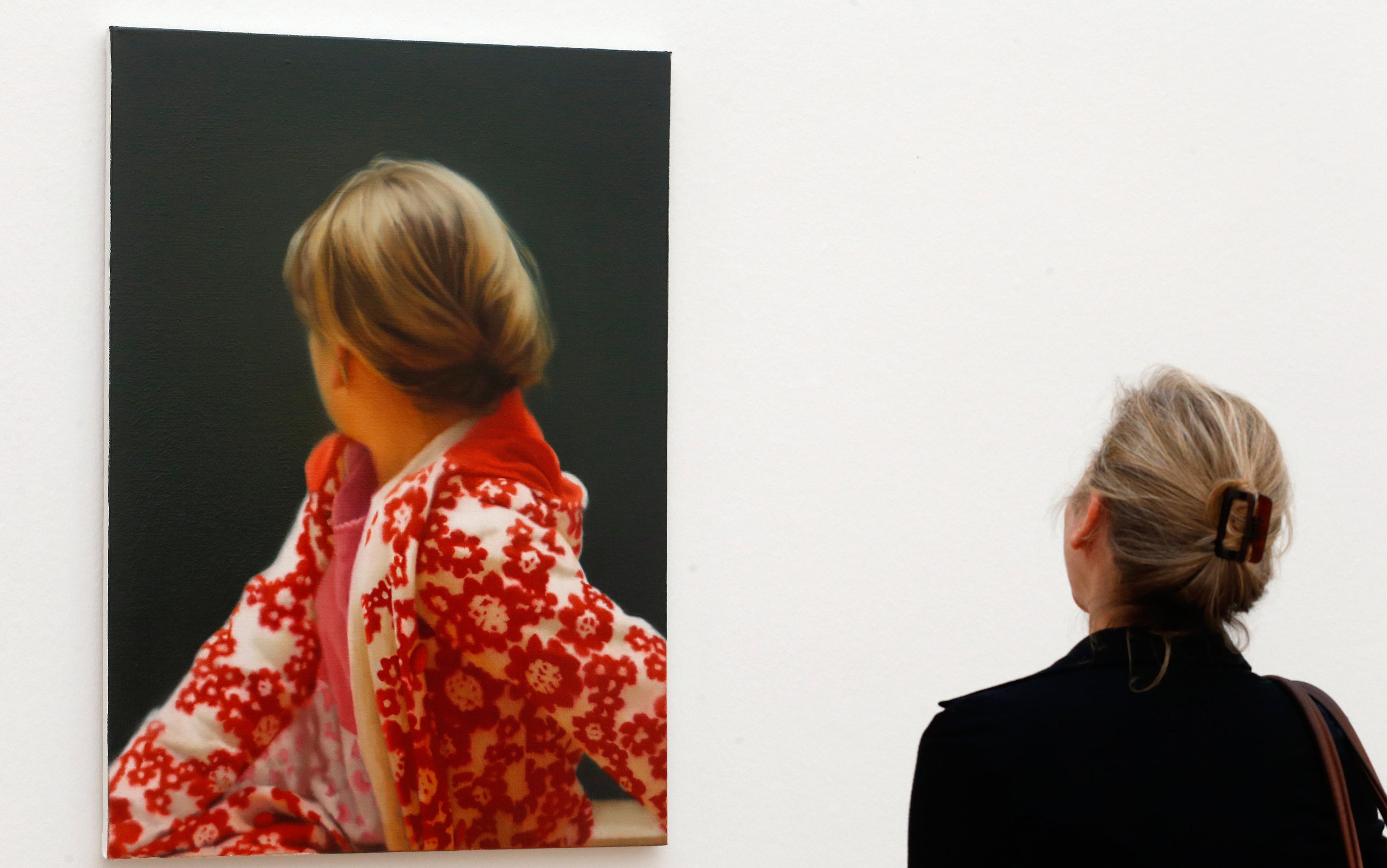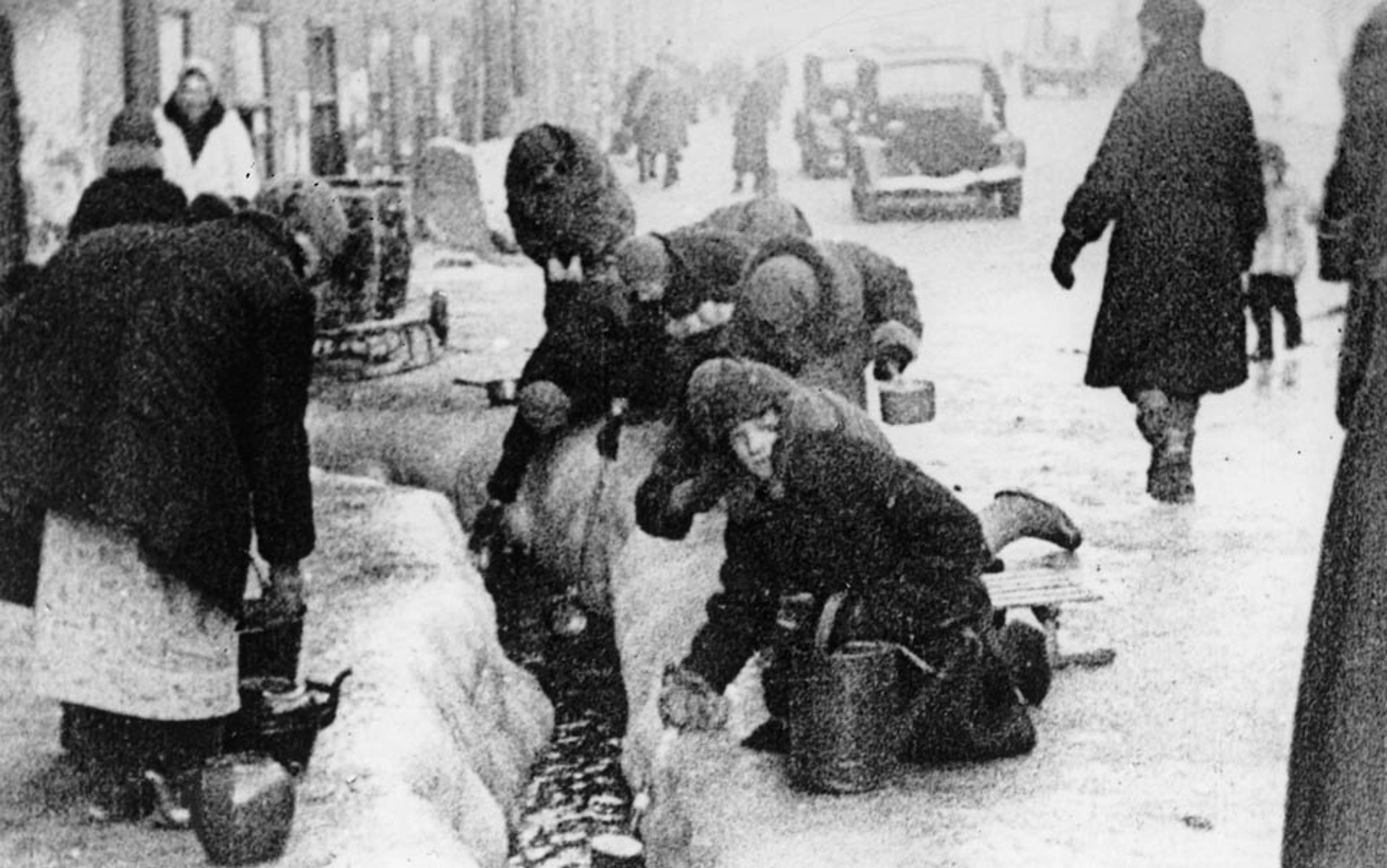Human memory is a wonderful but fallible instrument… The memories residing within us are not engraved in stone. Not only do they tend to fade over the years; they often change or even grow to incorporate extraneous features.
Primo Levi, The Drowned and the Saved (1986)
‘They used to ask me if I remembered her… I don’t. Well I remember a girl. But I don’t remember her specific features. Just a blurred face.’ This was Misha speaking about his sister who was shot in front of him by the Nazis when he was just four years old.
After her execution, an ‘anti-Semitic priest’ ran up to the Nazi officers and told them not to shoot the remaining Jews (including Misha and his mother) who were also awaiting a bullet. The priest said: ‘I don’t like Jews either, but you don’t have to kill them.’ In an eerily Dostoyevskian turn of fate, Misha was saved from the brink of death and a firing squad and, he says, for the ‘rest of my life I would never be able to answer the question of how I survived’.
When the Soviets liberated the camp, Misha was just six years old. He recalls the unusual silence of the morning, the absence of the German Shepherds’ barks. He later found the dogs poisoned, their corpses strewn across the camp. A Soviet soldier picked up Misha and told him to take off the yellow star sewn to his clothes. ‘You don’t need this any more.’
But how much of this was Misha’s memory, rather than his mother’s, passed on through a retelling and perhaps embroidering of events? He is unsure. Memory is not straightforward, particularly when it relates to trauma and the construction of a personal narrative and past.
In 2014, I travelled to Russia to study Jewish life during the late Soviet period, and to collect oral histories. Most of my relatives emigrated to the US from the Russian Empire in the early 1900s to escape anti-Semitism, and this project was my attempt to piece together, if not my own family history, then what could have been my family history.
While first-hand accounts of almost any subject are prone to distortion and lapses in memory (intentional or not), the collection of oral history within a Jewish tradition presents a specific set of challenges. Oral history has become a hallmark of Jewish culture and of the attempt to come to terms with the trauma of the Holocaust. Phrases such as ‘never forget’ are ubiquitous, and form the basis for the preservation of memory. The word ‘preservation’ itself suggests an embalmment of a narrative. In a tribute to the victims of oppression and horror, we give voice to those who were silenced.
When a voice is accorded to those who suffered, it seems insensitive to respond to what is being said other than with sympathy, grief, even anger. Steven Spielberg has started an invaluable project in The Shoah Foundation, collecting thousands of testimonies from Holocaust survivors that can instantaneously be seen and heard in multiple languages at the push of a button. The stories are dynamic and moving, yet they remain frozen and memorialised within the sphere of cyberspace. Perhaps it is inappropriate to respond at all; perhaps silence is the only appropriate response.
We hope that the world will ‘never forget’, but are we in fact forgetting by not entering into a dialogue with the narratives that flash before our eyes?
When I began this project, the idea of questioning a narrative did not occur to me and seemed grossly inappropriate, perhaps even morally wrong. I expected a more or less linear and unanimous narrative about the anti-Semitism that Jews faced in the USSR, and stories about how they fought to preserve their culture and identity. After all, the Soviet Union to which Misha returned after the war was hostile. The Soviet soldier might have removed the Star of David from Misha’s shirt, but in its place he was issued a passport that gave his ‘nationality’ as ‘Jew’. Between the end of the war and Stalin’s death in 1953, anti-Semitism was apparent: Jewish doctors were accused of attempting to assassinate Stalin; after a show trial in 1952, the Soviet leader had 13 Jews on the anti-fascist committee executed; and he was rumoured to be planning mass deportations. In the post-Stalin years, anti-Semitism did not subside. Jews were consistently scapegoated, blacklisted by prestigious universities, and faced difficulties at work.
Forced out of the mainstream by Soviet policy, a Jewish subculture and dissident movement naturally emerged. As a result of widespread anti-Semitism, between 1970 and the years following the collapse of the Soviet Union, approximately 1.89 million Jews fled Russia. Many were denied exit visas and spent years living in a state of ‘refusal’. Upon refusal, Jews were often stripped of their jobs and faced further surveillance and harassment.
The post-war Soviet Union, however, was riddled with contradictions that made it difficult for Jews to find their place and come to terms with their unjust treatment. A few synagogues remained open (though under surveillance by the KGB) and Yiddish papers could be bought and sold legally. Although Hebrew was technically banned, at times books written in the language could be found through legal means. These contradictions were maddening. Jews were discriminated against, but the official discourse was that everyone in the Soviet Union was equal, and so there could be no discrimination. This mass-scale dissonance was reflected in the ways in which the people I interviewed constructed their stories and recalled their pasts.
At what point do our memories, morphed by time and ourselves, replace our initial interpretation of events?
In my conversations with former Jewish dissidents who remained in Russia, Russian Jews who emigrated to New York, and an American Jewish lawyer who actively participated in the fight to ‘free Soviet Jewry’, I was struck by the contradictions in their narratives, shifts in memory, and the ways in which their retelling of the past seemed to fulfill a role; whether that was validating the decisions they had made, affirming their current positions, or finding a way to cope with open wounds and traumatic family histories. The stories I heard were untidy, ambiguous, sometimes self-contradictory, and anything but one-sided. I was in the midst of myth-making, and through every speaker I observed how each constructed a personal narrative and wrestled with his past. How does one separate one’s own history from the collective narrative, and when does the line between the two become irrevocably blurred?
The collection of oral history 25 years after the collapse of the Soviet Union undoubtedly leaves room for reimagining the past. While in some cases this shift was obvious, as I could compare my interview with the interviewee’s memoirs and writings from decades earlier, in many cases there was no younger self to hold a person up against; just the divergent retellings of their peers. So what explains these discrepancies? At what point do our memories, morphed by time and ourselves, replace our initial interpretation of events? Can our initial perceptions ever be objective? Is it possible that people who experienced roughly the same events experienced them in such vastly different ways?
Of course, any two witnesses will retell an incident differently, but to such an extreme degree? While this raises questions about the reliability of oral history in establishing fact, in this case, historical fact was not at issue. It is undeniable and irrefutable that Jews faced anti-Semitism and abuse, so these narratives, rather than contributing to fact, provided insight into the ways oral history serves as an opportunity for a speaker to create a personal useable history.
I interviewed Misha at his home in Brooklyn, along with his grandson, as his son silently looked on from the couch. Misha was born in Ukraine, and emigrated from Odessa to the US in the late 1970s. In retelling his story, Misha clearly remembered details from his life in the concentration camp and his sense of fear. But the image of his sister’s bloody and distorted face will be forever engraved in his memory, and has pushed out any other recollections of her that once existed. If he remembered her more clearly, perhaps it wouldn’t be possible to go on living. Though Misha was willing to talk about his past, at times he sounded distant. Before telling the story of his sister’s murder, he chatted at length about frivolities such as Russian television shows. He brought up his sister almost as an afterthought, and when recalling the moment of her execution used the words ‘after they [the Nazis] shot the girl’, only to correct himself and say ‘my sister’, as if the scar would be less severe if she weren’t so closely related.
Yelena, who emigrated to the US from Moscow in 1979, began our conversation by recalling her evacuation from the Ukrainian city of Kharkov as a young girl on the eve of the Second World War. Her father, an officer in the Soviet Army, got her family out and into Russia, as bombs were falling around them. Her grandparents, who refused to leave, were shot. But when asked about how anti-Semitism had influenced her life, she said that she never really felt anti-Semitism, maybe ‘because I didn’t look Jewish’. She humorously recounted a number of instances in Russia when she was asked what her nationality was, only to be told she didn’t look Jewish. Seemingly not seeing the contradiction, she spoke of how she hid her identity whenever possible. The experience of passing as non-Jewish, and its importance, reflects the extent to which she was aware of her Jewishness and the dangers associated with it. There was a disconnect between one of the formative events of her life – being evacuated from Kharkov as a Jew – and her claim that anti-Semitism hadn’t affected her. Throughout the interview she repeated: ‘You keep asking me about anti-Semitism, but I didn’t really experience it.’ And perhaps this was fair. I was imposing the story I wanted to hear on to her, and undermining the process of oral history.
Though slow to acknowledge the anti-Semitism she faced in Russia, Yelena went on to recount the difficulties she and her husband experienced at work, and the fact that she wasn’t given a raise (interestingly enough, by her Jewish boss) because, as he confided: ‘You know, we are Jews. We can’t rock the boat. I’m scared. There are enemies all around us.’
The discrimination at work and the knowledge that their daughter wouldn’t be able to go to university informed the family’s decision to leave. At the border, the customs officers ransacked the few belongings they were allowed. Their daughter was taken to a separate room and searched. Another couple’s baby was ‘turned inside out’, to ensure they hadn’t hidden anything. By the time they finally got on the plane, Yelena’s husband was ‘boiling’. He died a few years later ‘from the humiliation and stress of leaving’. They were leaving forever. Leaving family members behind. They had no way of knowing then that the Soviet Union would collapse within the next decade.
By denying the existence of potential alternatives, they were preventing a re-evaluation of memory, the past, and even the present
Misha recalled almost missing the train that would take him out of the Soviet Union. Once he boarded, he was told his seat had been given away. The customs officers tried to confiscate the few belongings he had. Misha bribed them with vodka. He hardly even had money to buy his son bread.
Another family in Brooklyn, who had spent years in a state of ‘refusal’ before finally being allowed to leave, said in our discussions of contemporary Russia that ‘there is [currently] no future for Jews in Russia’. This seemed an attempt at justifying their decision to emigrate. Though the Jewish community in Russia today is largely thriving, this family had frozen time for themselves at the moment of emigration. By denying the existence of potential alternatives, they were preventing a re-evaluation of memory, the past, and even the present.
While the desire to validate the tragic decision to leave can prevent a re-evaluation of the past, preclude analysis and definitively stamp out alternatives, the flipside was the re-assertion of a false power over choice, and a downplaying of anti-Semitism and the difficulty involved in making the decision to emigrate.
Slava left Leningrad in 1984. His cousin had been arrested in connection with what is known as ‘Operation Wedding’. In 1970, a group of Jewish dissidents attempted to hijack an empty plane out of Leningrad to Israel, in a display of desperation and protest against their inhumane treatment. They, as well as many other Jewish activists, were arrested and given sentences ranging from lengthy prison terms to death. This event was a turning point in the dissident movement, attracting the world’s attention. As a result of negotiations and US intervention, the sentences were reduced.
So Slava’s cousin was a member of what is arguably the most important moment in Soviet Jewish history. Yet in speaking of this event, Slava was flippant. ‘[My cousin] was from a wealthy family in Leningrad… He had a great life… He wasn’t a Zionist at all, he just met a girl who convinced him to join.’ When I pressed him further on the extreme sentences the hijackers and activists received, he was quick to say: ‘No, no, there were no death sentences… He just got seven years. He sat out his time in prison, went to Israel, and that was the end of that.’
When I asked Slava about his own decision to leave, he said that he never faced any anti-Semitism, and that the only reason he left was because his sister had done so, glossing over the fact that he was refused exit for two years. It was as if denying the demons of the past would keep them away – a kind of retrospective wishful thinking. This phenomenon was present in many of the stories I heard from the vanguard of the dissident movement who remained in Russia.
‘When I see your book entitled The Jewish Soviet Dissident Movement, I’ll write a review saying that there was no Jewish dissident movement,’ Mikhail Chlenov, the ‘secretary general’ of the Euro-Asian Jewish Congress, said to me at his office in Moscow. Chlenov once led the cultural (as opposed to the political) branch of the Jewish dissident movement, which was primarily concerned with the establishment of a legal Jewish life within Soviet Russia (along with the right to emigrate), but he has long since come out from the underground. Yet, despite this well-documented history, when I asked about his past, he told me that the Jewish movement was not a dissident movement at all, and that they were concerned only with leaving. In the neighbouring office, his long-time colleague Roman Spektor did not shy away from the term dissident, and said of himself: ‘I consider myself a veteran, invalid and relic of the Jewish street… We consciously promoted the thesis that there are two main goals. On the one hand there is the national Zionist movement for repatriation, and the second was the construction of a Jewish cultural and social life [within the Soviet Union].’
American Jews projected their own fears on to the Soviet Union. It was an opportunity to re-enact their past, but this time regaining control
When I asked Chlenov about anti-Semitism and the nationalist groups that emerged during perestroika, he waved his hand and said:
Of course, there was an atmosphere of panic, but it didn’t really correspond to reality. I remember being in America at the beginning of the 1990s, and among American Jews there was a complete hysteria. ‘The pogroms!’ I remember I was somewhere, and there were these sweet old women, who were seriously discussing the fact that, when pogroms begin in Moscow, they must send helicopters to Red Square. The Jews will be on Red Square surrounded by pogromshiks. The helicopters will drop a ladder, and the Jews will climb up. And when I told them we weren’t expecting any pogroms, they saw me as a traitor of national interests. The hysteria in America was worse than in Russia… All of these stories about nationalist groups and various horrors, as an anthropologist, I interpret as an element of folklore, and not as reality.
Leonid Kolton, another dissident, recalled the period entirely differently:
I even remember that there was a day when everyone was saying: ‘Today there will be a pogrom.’ Everyone sat quietly at home. And everyone knew about it.
So what explains these incongruent renderings of the past between people and even individuals themselves? Chlenov’s answers were a clear break from his former identity. He was retelling a story informed, perhaps, by his current status, but also by the knowledge of what had happened after the collapse of the Soviet Union, and the fact that everything turned out more or less OK for the Jews who remained. However, Chlenov did bring up a relevant point. Panic in the US very much existed, in many ways due to the hard-wired collective memory among American Jews of the Holocaust and anti-Semitism in Imperial Russia. American Jews projected their own fears on to the Soviet Union, eliminating the nuances of the situation. It was an opportunity to re-enact their past, but this time regaining control and preventing what had happened to their relatives from being repeated. Chlenov was viewed as a ‘traitor’ for not telling them what they wanted to hear.
A Los Angeles lawyer actively involved in the fight to free Soviet Jewry sobbed during my interview with him because ‘it could have been me… if my family hadn’t left Ukraine’. I could relate because, in many ways, my research was an attempt to affirm the narrative I had constructed and wanted to see as well. I was initially looking at the Soviet Union through the lens of my own family history and larger Jewish memory, rather than the context of the Soviet Union. Anything that challenged what I wanted to hear made me uncomfortable. I was allowing myself to be a curator of memory, yet I and everyone I interviewed were engaged in attempts to harness memory through oral history in ways that corresponded to how we wished or needed to see ourselves.
There was a dichotomy between those who, 25 years after the collapse of the Soviet Union, tailored their memories to dull the pain of their past, and those who shaped their memories to emphasise and hold on to that pain. In many narratives, there was a denial of any memory that diverged from their own, and even denials of their former selves. But while myth-making and a reworking of memory was undoubtedly taking place, that didn’t undermine the validity of what was being said and felt, nor does it mean that the interviewees were intentionally distorting history.
Most were doing what we all do daily, on a smaller scale, when we recall events and construct narratives of our past. The only difference was that I was catching these incongruities on camera and attempting to find consistency and truth amid the chaos and dissonance of the accounts I was provoking. Though I thought I was objective in my questioning and recording of events, I quickly discovered that collecting oral history is not straightforward: there is a degree of subjectivity and, despite the apparent objectivity of the camera, there is great scope for distortion.
The stories are temporally and spatially bound by the date on which they are recorded and, had I conducted the interview at a different time, I might have evoked different memories and responses. The person telling her story might be crafting a memory for herself but, upon hearing it, the listener too creates a memory and a perception that might diverge from what the speaker actually said. In writing this essay, I found myself misremembering and misattributing what speakers had said, having formulated a false memory and impression of their words. I had the touchstone of the recorded interviews, but was engaging in the same wishful thinking that I saw the speakers engaged in, and realised that wishful thinking is just as much about the listener as the speaker.
Memory is not stagnant, but constantly changing and continually shaped by our present and the stories we tell ourselves
The sacredness of memory, and the taboo associated with examining it, can preclude analysis, denying a voice to those, such as Slava, Chlenov and Yelena, who have something legitimate to say that does not fit into a convenient narrative, or suggests one we might not want to hear. It also makes it uncomfortable to identify the faults in what is being spoken by those same people. While facts are not negotiable, our interpretations and experiences are never unanimous, and clashes of narratives lend insight into the deep internal conflicts that each person faced and continues to face.
Memory, by its very nature, is never fully formed. Preservation of memory is vital, but the genre of oral history does not immunise speakers or their words from questioning. Memory is not stagnant, but constantly changing and continually shaped by our present and the stories we tell ourselves. It is fallible, as are our perceptions, interpretations and the conclusions we draw from events. It is unnatural not to question or speak back to the stories we hear. Leaving memory unexamined, and granting it the status of sacred or untouchable history, does memory itself a great injustice.
